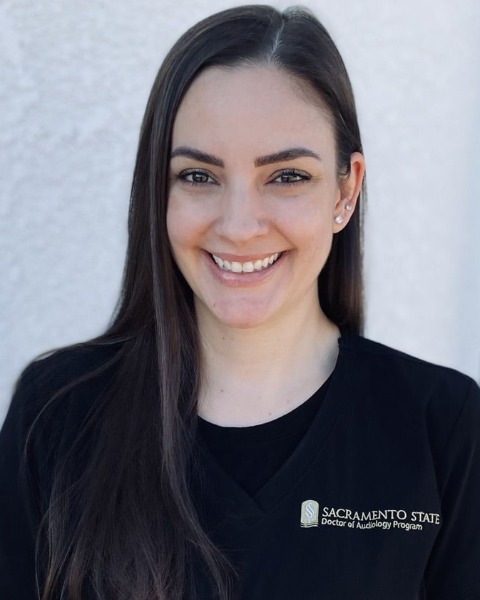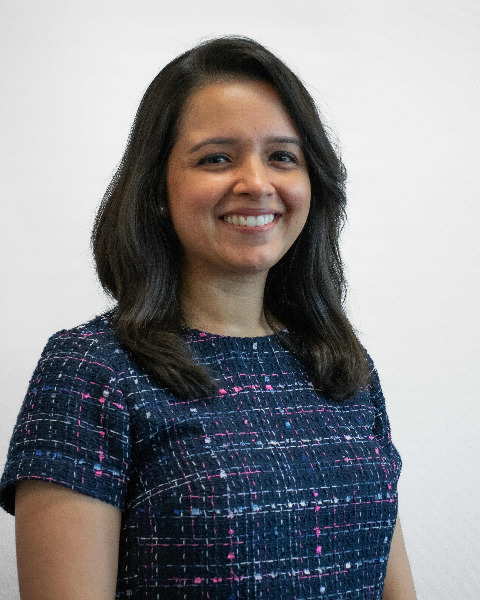Pediatrics (P)
PP1114 - Parental Journeys that Led to Oral-Only Communication with Their Deaf Children

Kasey Cain
California State University, Sacramento
California State University, Sacramento
Lincoln, CaliforniaDisclosure(s): No financial or nonfinancial relationships to disclose.

Laura Gaeta, PhD
Associate Professor
California State University, Sacramento
California State University, Sacramento
Sacramento, CaliforniaDisclosure(s): No financial or nonfinancial relationships to disclose.
Lead Presenter(s)
Presenter(s)
The purpose of this presentation is to discuss the parent journey as it relates to key moments, the grief cycle as they process the diagnosis, the importance of family support, encounters with various professionals on their child’s team, and acceptance. This presentation will share the findings from interviews conducted with caregivers of children who chose an oral-only communication modality and those who made the decision to no longer use sign language. Recommendations for more inclusive counseling based on these findings will also be presented.
Summary:
More than 90% of Deaf or Hard of Hearing children are born to hearing parents (Mitchell & Karchmer, 2004). Since the Early Hearing Detection and Identification Act of 2010, more than 95% of infants in the United States undergo a universal newborn hearing screening. Infants who do not pass the screening are on track to be identified at three months and receive intervention strategies by six months of age. Caregivers are coping with this same timeline to make decisions about the communication modalities for their children that could impact them for a lifetime. Families can often be conflicted on what is best for their family and child with differing recommendations from various professionals. This decision-making process can lead to families delaying necessary processes of critical language development, which can lead to language deprivation. Language acquisition and the use of sign language in deaf children is often talked about in Deaf Education Journals but is now seemingly gaining more attention in with current literature from the American Academy of Pediatrics (Bower et al., 2023) and from the Journal of Speech, Language, and Hearing Research (Pontecorvo et al., 2023). This presentation demonstrates the relevance of current literature while discussing the parental journey as it relates to key moments, the grief cycle as they process the diagnosis, the importance of family support, encounters with various professionals on their child’s team, and acceptance.
This presentation will share the findings from research that included interviews conducted with caregivers of children who chose an oral-only communication modality, and those who made the decision to no longer use sign language. Two groups of participants were recruited using purposive and snowball sampling methods; the first group never used sign language with their child, and the second group initially used sign language but later shifted to oral only. Semi-structured interviews lasted between 60 and 90 minutes and were transcribed using Otter AI. These interviews explored the parents’ journeys, starting from the universal newborn hearing screening and extending to the factors that influenced their decision to choose an oral-only communication approach.
These are the preliminary results; full results will be shared at the conference in 2024. Audiologists are the first professionals that parents encounter when learning about their child’s hearing loss. When counseling parents of DHH children, audiologists should discuss the risks of language deprivation and the critical time period for language development, while providing resources and encouraging the use of all language modalities. They should also discuss the importance of wearing hearing devices soon after diagnosis to access sound for acquiring spoken language skills (Ching, 2015). Providers are encouraged to remain compassionate towards families' experiences throughout their journey and remember that each family’s experience is unique.
Learning Objectives:
- Upon completion, the participants will be able to describe the parent/caregiver journey and the decision-making factors that led them to choose oral-only communication for their family.
